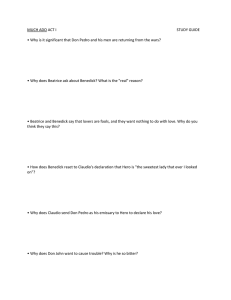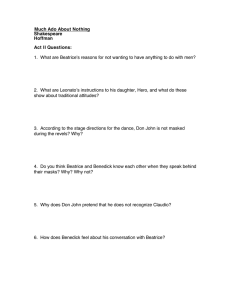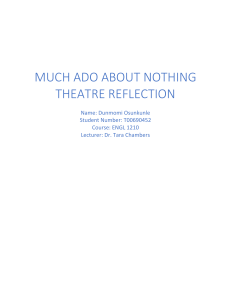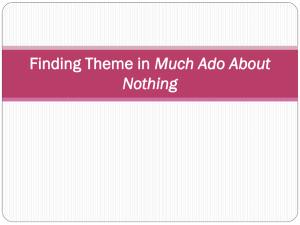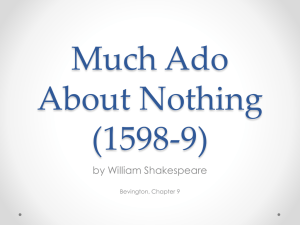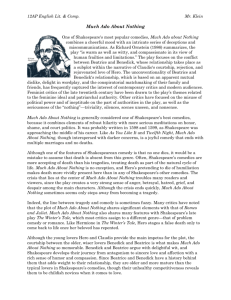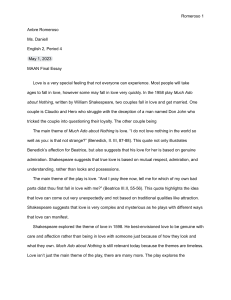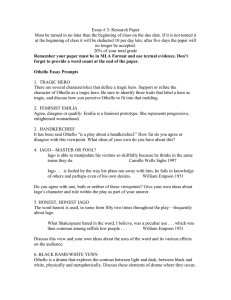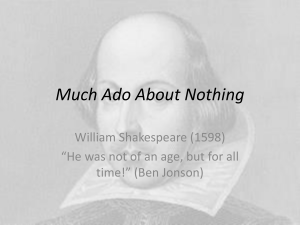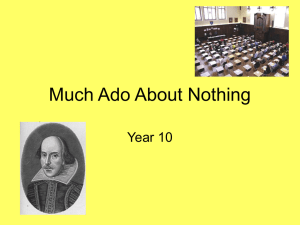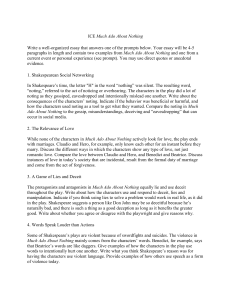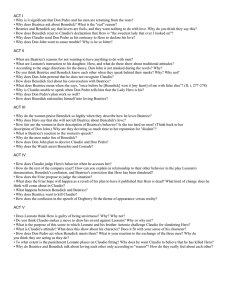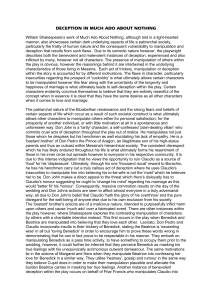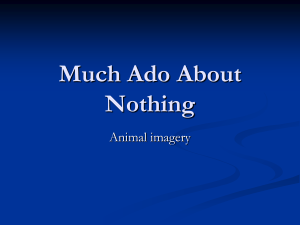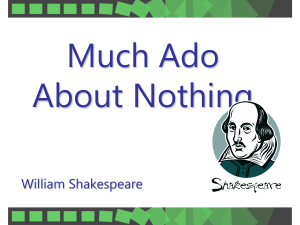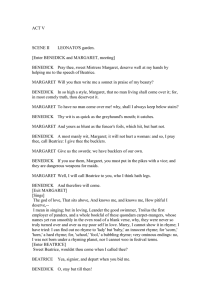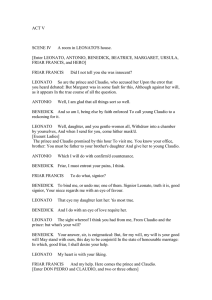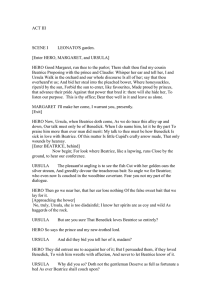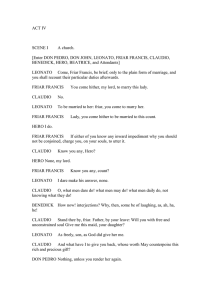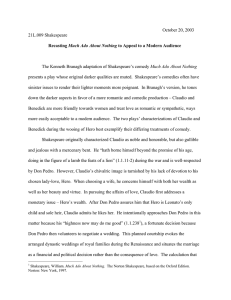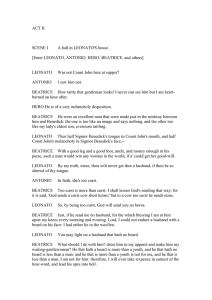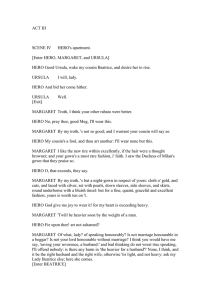Much Ado About Nothing Much
advertisement
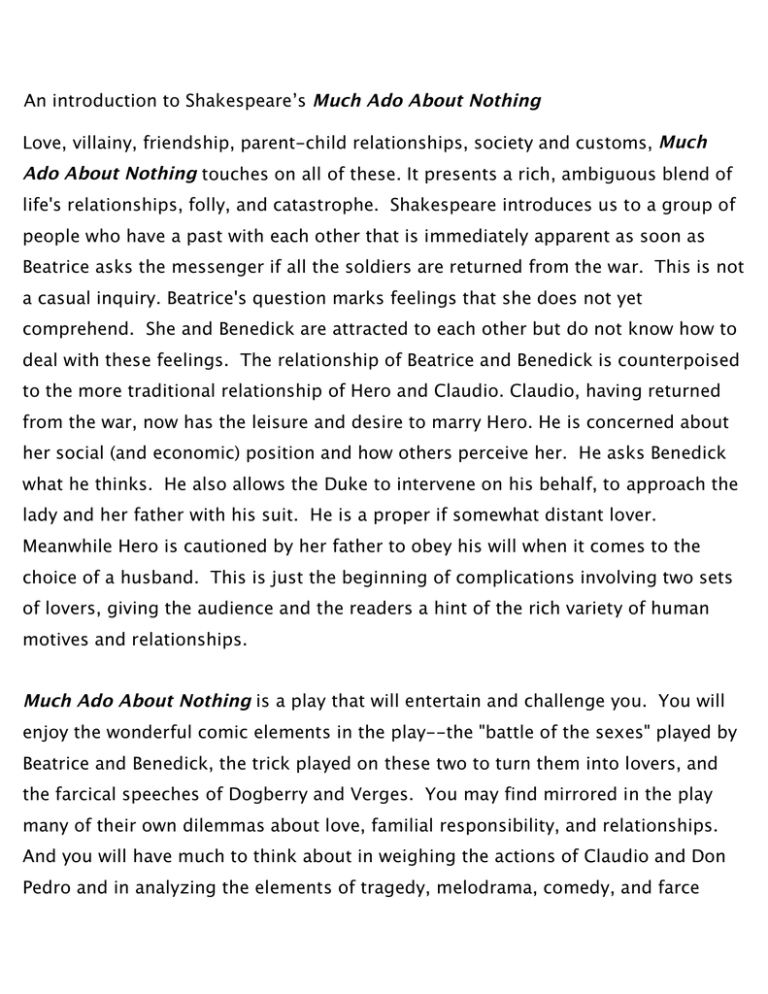
An introduction to Shakespeare’s Much Ado About Nothing Love, villainy, friendship, parent-child relationships, society and customs, Much Ado About Nothing touches on all of these. It presents a rich, ambiguous blend of life's relationships, folly, and catastrophe. Shakespeare introduces us to a group of people who have a past with each other that is immediately apparent as soon as Beatrice asks the messenger if all the soldiers are returned from the war. This is not a casual inquiry. Beatrice's question marks feelings that she does not yet comprehend. She and Benedick are attracted to each other but do not know how to deal with these feelings. The relationship of Beatrice and Benedick is counterpoised to the more traditional relationship of Hero and Claudio. Claudio, having returned from the war, now has the leisure and desire to marry Hero. He is concerned about her social (and economic) position and how others perceive her. He asks Benedick what he thinks. He also allows the Duke to intervene on his behalf, to approach the lady and her father with his suit. He is a proper if somewhat distant lover. Meanwhile Hero is cautioned by her father to obey his will when it comes to the choice of a husband. This is just the beginning of complications involving two sets of lovers, giving the audience and the readers a hint of the rich variety of human motives and relationships. Much Ado About Nothing is a play that will entertain and challenge you. You will enjoy the wonderful comic elements in the play--the "battle of the sexes" played by Beatrice and Benedick, the trick played on these two to turn them into lovers, and the farcical speeches of Dogberry and Verges. You may find mirrored in the play many of their own dilemmas about love, familial responsibility, and relationships. And you will have much to think about in weighing the actions of Claudio and Don Pedro and in analyzing the elements of tragedy, melodrama, comedy, and farce united in the play. You will find in this play a rich source from which to draw in developing your abilities to read, analyze, discuss, and write. Much Ado About Nothing is a Shakespearean work accessible to all of us; it is a true classic and timeless in its appeal. What's Your Opinion? Mark the statements as true or false and tell me ‘why’ you think this: 1. Men and women should marry persons of a similar social and economic status as themselves. 2. People choose with whom they will fall in love. 3. It is better not to marry than to marry and risk being cheated on by your spouse. 4. Most people can be trusted to be faithful in marriage. 5. Men are attracted to women who are assertive and bold. 6. Jealousy in a romantic relationship is usually a sign the relationship has problems. 7. Because parents usually know what is best for their children when it comes to choosing a mate, children should go along with their parents' wishes in this regard.
